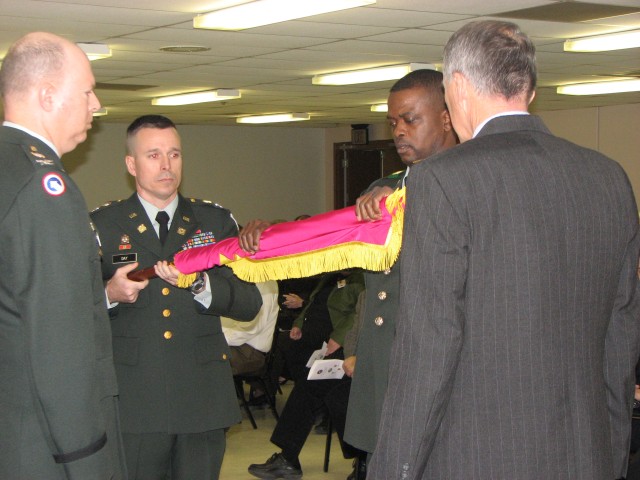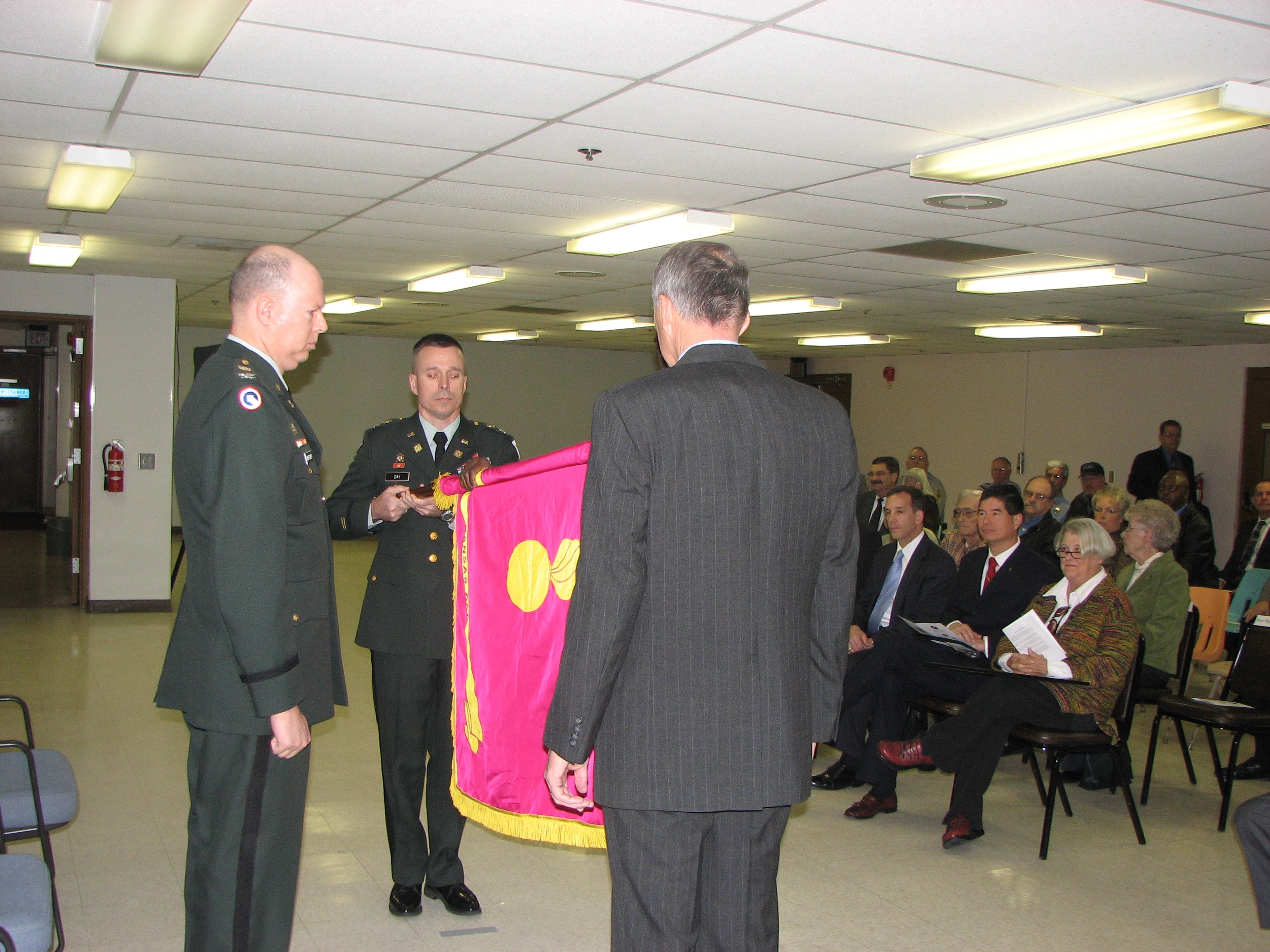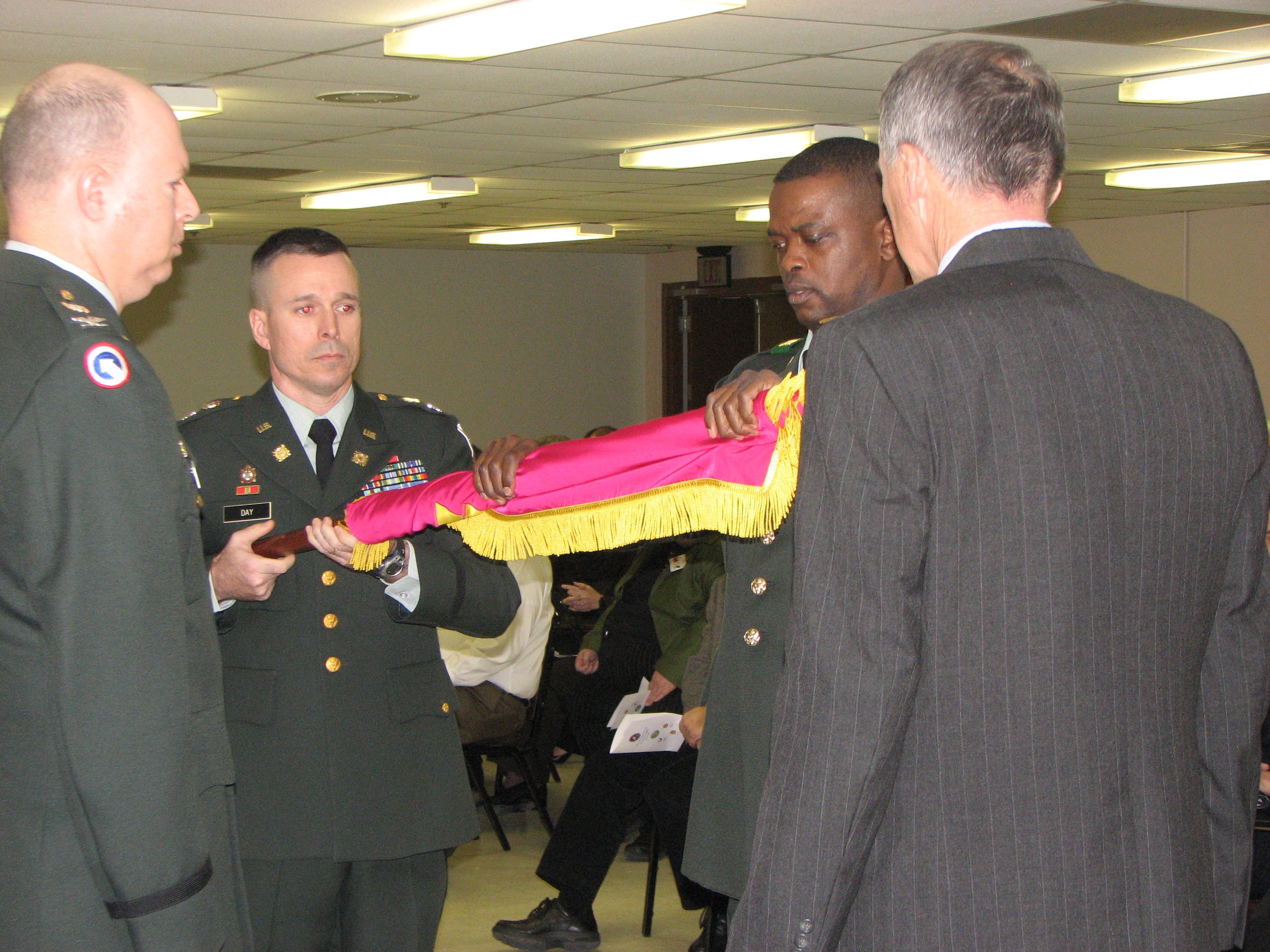PARSONS, Kan. - After 68 years, the Kansas Army Ammunition Plant officially ended its ammunition production mission following a deflagging ceremony March 4.
Col. Arnold P. Montgomery, commander, McAlester Army Ammunition Plant, in McAlester, Okla., applauded the community's commitment is supporting the nation's defense.
"What a great day to be in Kansas. It is my honor to be here today to host this deactivation ceremony and to discuss the tremendous history of Kansas AAP. And what a history it is," he said.
"Ladies and gentlemen, thank you for your hard work at Kansas AAP," he said. "You helped to protect our nation for many years."
The closing of Kansas AAP represented the first large Army installation closure of the 2005 Base Realignment and Closure actions.
The plant was a subordinate of Joint Munitions Command. JMC provides bombs and bullets to America's fighting forces -- all services, all types of conventional ammunition from 500-pound bombs to rifle rounds.
Kansas AAP was constructed in 1941 and the first ammunition was produced in 1942. This ammunition was vital for the nation's efforts in World War II, the Korean War, the Vietnam War, the Gulf War, and the Global War on Terrorism.
Ammunition production at the plant evolved over the decades starting with manufacturing processes for basic artillery and mortar shells. When production ended in December, sophisticated air-dropped weapons using with infrared and laser technology for target detection and guidance were being produced.
Before its closing, Kansas produced the Sensor Fuzed Weapon for the Air Force, M720 and M768 60 mm mortars for the Army and the M795 155 mm projectile for the Marine Corps. The plant also produced other various ammunition items in smaller quantities.
On Jan. 1, the Army awarded a caretaker contract for Day Zimmermann, Inc., to provide security, safety, and maintenance at the plant. With the completion of production, plant activity will now focus on environmental remediation, disposal of equipment, and sale of the real property.
The Army plans to transfer ownership of the property in four parcels. The Great Plains Development Authority, the Kansas Department of Wildlife and Parks, and Day & Zimmermann, Inc., will each own a portion of the plant. A fourth parcel with the administration building will be sold at public auction.
"It's a bittersweet day for Southeast Kansas and Parsons," Parsons' Mayor Robert Bartelli said. "As one door closes, another will open. It's already in the process. Thank you to the Army for everything you've done."
"It marks a milestone in a lot of people who passed through here," Kansas AAP Commander's Representative Don Dailey said. "It's sad. It continued to be a great place to work. Sad to see the mission end, but looking forward to the future."
The Kansas property is under the caretaker status of the Army's Installation Management Command-Fort Riley.
The Base Realignment and Closure Commission in 2005 recommended the plant's closure, along with the closure of three other ammunition production facilities; Mississippi AAP, Stennis Space Center, Miss.; Lone Star AAP, Texarkana, Texas; and Riverbank AAP, Riverbank, Calif. The commission also ended ammunition storage missions at Sierra Army Depot, Herlong, Calif.; and Red River Army Depot, Texarkana, Texas. All BRAC realignments and closures must be complete by 2011.
JMC manages the facilities that manufacture, procure, store, issue and demilitarize conventional ammunition for all U.S. military services and selected non-Department of Defense customers. JMC serves as DoD's field operating agency for the Single Manager for Conventional Ammunition mission.




Social Sharing